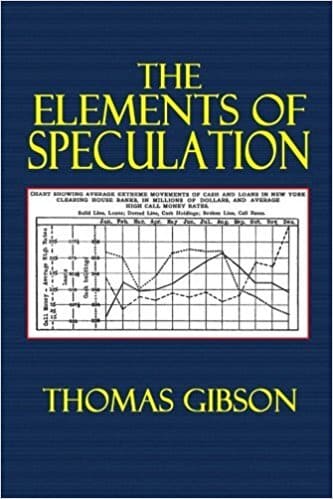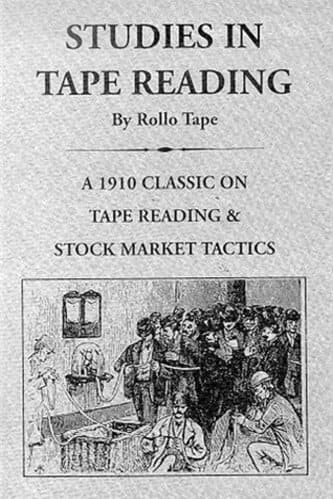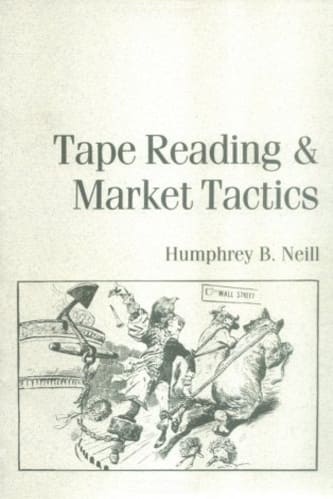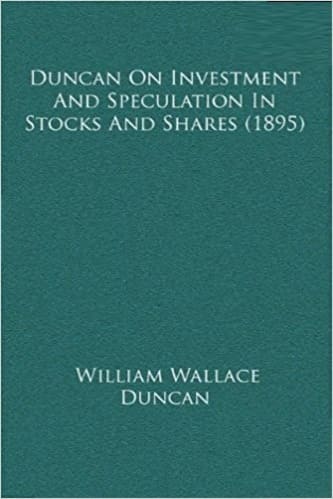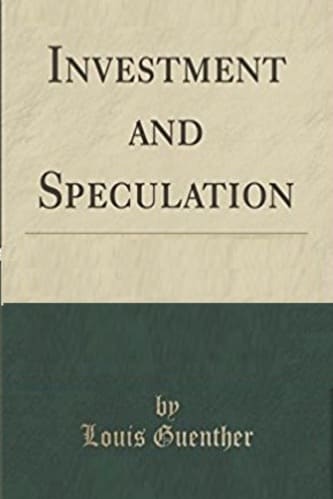The Elements of Speculation
$18.00
| Author(s) | |
|---|---|
| Pages |
153 |
| Format |
|
| Published Date |
1913 |
For the sake of a clear understanding it may be well to define the meaning of the word “Speculation” as employed in this volume. There has been a widespread corruption of the term, particularly when applied to operations in securities. The popular understanding is that a speculator is one who gambles on margin, who buys what he cannot pay for, or sells what he does not own.
Introduction:
The man who buys outright and pays for what he buys is called an investor. In both cases the terms are frequently misused. Any purchase of securities made because the stock or bond purchased is considered cheap and in hope of an advance in value and price, is a speculative purchase. It matters not whether the property so acquired is paid for in cash or a partial payment made in the form of a margin. Yet so hazy is the general opinion on this subject that the man who buys on margin and borrows the balance from his broker is called a speculator, while the man who buys outright and then hypothecates his certificates with his banker for a loan is called an investor.
The process is exactly the same in both cases. The distinction is without a difference. If a purchase is made through a broker on margin, the broker must at once pay for the purchase in full, charging the unpaid balance to the customer as a loan. The actual certifictes are the broker’s security just as they would become a bank’s security in case they are made the basis of a loan. If we wish to draw a knife edge between the two terms “speculation” and “investment,” we must look upon everything purchased in the belief that higher prices will be realized later as a speculative venture, and confine the word “investment” to purchases made for income return alone, without reference to possible profits through accretion in value or price.
We are continually hearing warnings against speculation from rich men who have made their own fortunes in speculation-fortunes which could have been made in no other way-and Lorn self-appointed public educators who have not the slightest conception of what. they are talking about. They accomplish nothing. They could accomplish a great deal if, instead of issuing blanket warnings against all forms of speculation, they would point out the hopelessness of gambling on inadequate margins or following tiips, charts or other ignis fatuui which lure the speculator to his undoing.
If these mentors would impress their audiences with the fact that all the get rich quick devices masquerading as speculative opportunities are traps or dreams; that speculation means a correct forecasting of the future progress of a certain territory, or of the entire general business situation, or of a specific security, and that the accuracy of such forecasting was wholly dependent upon personal toil and study, they would confer a greater boon on society than by bawling to their followers to abjure speculation in any form and get rich saving their wages.
Speculation, whether it is in securities, real estate, groceries or whatever, must be conducted as a business, and when a man enters that business he must equip himself with intimate knowledge of its character and possibilities. I do not hesitate, after many years of observation and experience, to state that no large for tune can be made in a brief period of time in the speculative world, and that no fortune of any kind can be made in any period of time by speculating blindly on tips or information.
People have grown suddenly rich by discovering gold mines, etc., but that is accident rather than speculation. If any large fortune is ever made in speculation in a brief period, it is merely an exception which proves a rule. In former works I have pointed out in a general way the errors and the possibilities of speculative ventures and offered suggestions as to correct methods. In this volume I will take up in more detail the principal fundamental factors governing security price movements and endeavor to show how such factors may be examined and weighed expeditiously and accurately. It ‘is realized that the subject is too ‘broad for a complete discussion in the limits of a single volume, but it is hoped that what is suggested will be found helpful and will act as an incentive to further personal examination and study.
Contents:
- The Anteriority of Security Prices
- Crops
- Security Prices and Crop Prospects
- Money
- The Currency Question
- Our Foreign Trade
- Bank Clearings
- Charts and Stop Loss Orders
- Mental Characteristics
- The Future of Our Railroad and Industrial Securities
- Speculation in Commodities
- Conclusion
The Elements of Speculation By Thomas Gibson PDF

